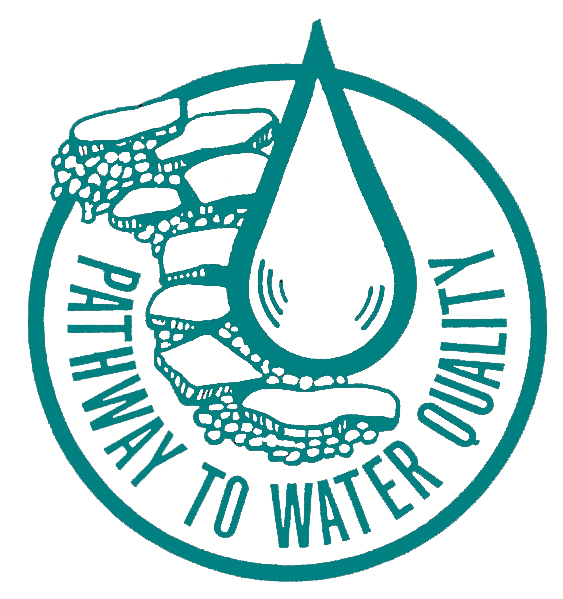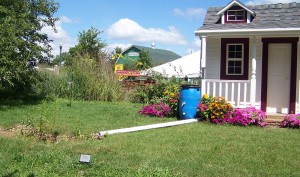 Native Plants tend to grow better than introduced species because they have evolved under local growing conditions. They are less prone to disease and, once established, require less watering and fertilizer. They can also reduce the amount of lawn you need to mow.
Native Plants tend to grow better than introduced species because they have evolved under local growing conditions. They are less prone to disease and, once established, require less watering and fertilizer. They can also reduce the amount of lawn you need to mow.
Pervious Pavement (which includes pervious concrete, porous asphalt, permeable paver blocks and reinforced turf) allows water to filter through it where pollutants are trapped and cleaned before running into the soil and the earth below. That way, dirty storm water doesn’t run off into our water supply. View fact sheets from various states for additional information.
Backyard Conservation such as ponds wetlands, tree plantings, composting, mulching and creating wildlife habitat all help the environment and enhance your surroundings. See the Indiana Wildlife Federation and Hamilton County SWCD websites for more information.
Rain Barrels, placed below a downspout of a roof gutter, collect and store rain water than can be used to water plants and gardens. Rain barrels conserve water and reduce water bills.
Rain Gardens use plants to absorb and filter rain water that would otherwise wash pollutants from your lawn, driveway and street into storm drains, which lead to our rivers, lakes and streams.
Composting provides homeowners with a way to send less trash to the landfill. Vegetation from the home and yard, food scraps, leaves, coffee grounds and many other organic materials can be composted. By mixing and decomposing, these materials will be turned into fertilizer and humus for use in the garden, flower beds and around trees. Composting guides and resources are available from Purdue Extension, St. Joseph County SWCD, Cornell Cooperative Extension and the Indiana University Environmental Resilience Institute.
Cover Crops are plants grown for the primary purpose of improving soil health. Cover crops suppress weeds, build productive soil, and help control pests and diseases. Cover crops are easy to plant and require only basic care to thrive. For tips on incorporating cover crops into your home garden, see Cover Crop Basics for Gardens and Cover Crops in the Home Garden.
Septic Systems are used to treat wastewater from homes that aren’t connected to a centralized sewer system. Proper maintenance and care are needed to keep septic systems working properly and to protect human health and water quality.
Other resources:
- Clear Choices, Clean Water
- IDEM Watersheds and Non Point Source Pollution
- Purdue Extension: Lawn and Garden Pubs
- Invasive Plants (Midwest Invasive Plant Network)
- Marion County SWCD – Urban Conservation
- Hoosiers Restoring Water, Success Stories
- White River Alliance
- West Central Indiana Watershed Alliance

